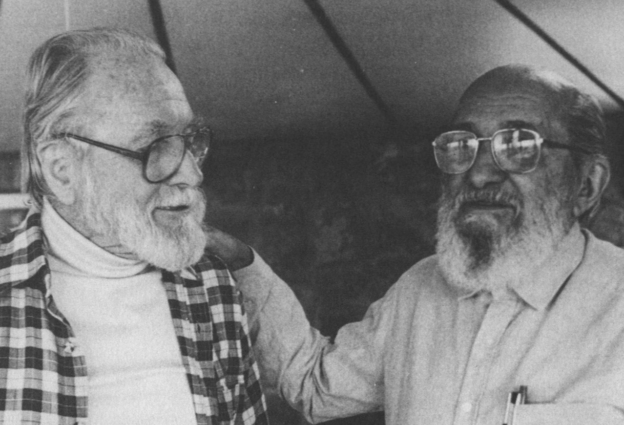- Facebook132
- Threads
- Bluesky
- Total 132
This is a perfect short poem from Antonio Machado’s Proverbios y Cantares (1912):
XLIV Todo pasa y todo queda: pero lo nuestro es pasar, pasar haciendo caminos, caminos sobre la mar Everything passes and everything stays, But ours is to cease to be. As we go, we make a highway, A highway on the sea. [revised on Dec 1, 2023.]
Machado had already juxtaposed caminos (roads, paths, journeys) with el mar (the sea) in the second poem of the volume:
II ¿Para qué llamar caminos a los surcos del azar?... Todo el que camina anda, como Jesús, sobre el mar. Why designate as highways furrows left aimlessly? ... Anything that travels moves, like Jesus, on the sea.
The same pairing recurs in the most-quoted lyric of the whole book:
XXIX
Caminante, son tus huellas
el camino y nada más;
caminante, no hay camino,
se hace camino al andar.
Al andar se hace camino,
y al volver la vista atrás
se ve la senda que nunca
se ha de volver a pisar.
Caminante, no hay camino,
sino esteles sobre la mar.
Traveler, the highway
is your footprints, nothing more;
Traveler, there is no highway,
you make it as you walk.
As you walk, you make the highway—
and the path you see when you turn back
is the route where you'll never be.
Traveler, there is no highway,
save for trails upon the sea.
In 1987, the Brazilian educator Paolo Freire (then 66 years old) and the American organizer Myles Horton (82) interviewed each other at the Highlander Folk School in Tennessee, which Horton had led. Freire says, “Myles, I think we could start our conversation by saying something to each other about our very existence in the world.” A little later, he adds, “It’s very important for Brazilian readers to have information about Myles. About me, they have already, but about Myles they don’t have and it’s very, very important.”
Horton adds, “Yes, but the people in this country need the same thing about you.” He then proposes to talk “mainly [about] the things that would help people understand where I came from in terms of my ideas and my thinking, what they are rooted in. Is that the idea?” Freire replies, “Yes. Everything you recognize as something important. I think that even though we need to have some outline, I am sure that we make the road by walking. It has to do with this house [Highlander], with this experience here. You’re saying that in order to start, it should be necessary to start.”
The resulting book, We Make the Road by Walking (Horton & Freire 1990), explains in a footnote that Freire is adapting “a proverb by the Spanish poet Antonio Machado, in which one line reads “se hace camino al andar,” or “you make the way as you go.”
For activists, this phrase suggests that people can make new pathways by taking action, and perhaps that we should learn the trails that our elders have left for us. But I think Machado’s original point was apolitical. He meant that the stories we tell about ourselves are not permanent–or even important–and they vanish as we pass through them.
Translations by Peter Levine. Photo by Candie Carawan in Horton & Freire, We Make the Road by Walking (Temple University Press 1990). See also: Machado: Glory is never what I’ve sought; Lorca’s rivers.
[I had misread “esteles” as “estellas” and thus written “stars” instead of “trails.” Thanks to reader Barry Cusack for the correction.]
